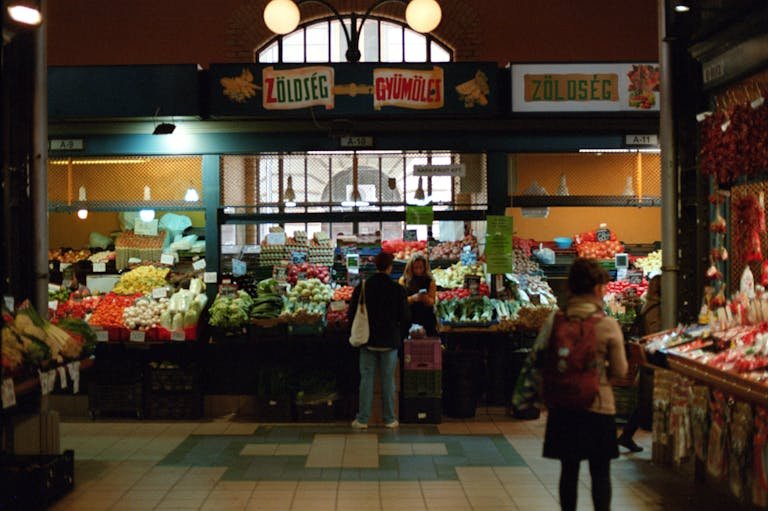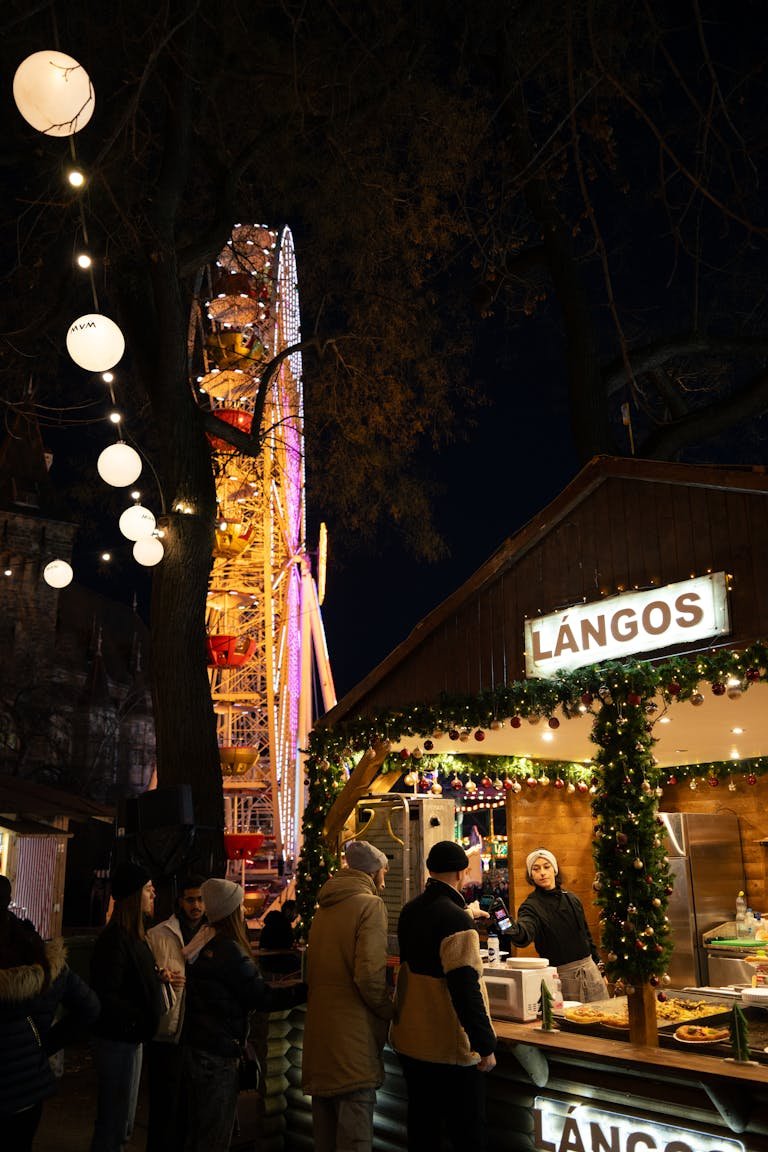The Real Cost of Living in Budapest: A Detailed Monthly Budget Breakdown (2025)
Planning a move to Hungary’s stunning capital? Here’s everything you need to know about the actual costs of living in Budapest, from housing and utilities to groceries and entertainment – with real numbers from 2025.
Introduction: Why Budapest is Europe’s Best-Kept Secret for Affordable Living
Budapest has quietly become one of Europe’s most attractive destinations for expats, digital nomads, and retirees seeking a high quality of life without the hefty price tag of Western European capitals. With its stunning architecture, rich cultural scene, and surprisingly affordable cost of living, the Hungarian capital offers an unbeatable combination of Old World charm and modern convenience.
But what does it actually cost to live in Budapest in 2025? After extensive research and analysis of current market data, we’ve compiled this comprehensive guide to help you understand the real monthly expenses you’ll face in this beautiful city.
Whether you’re considering a permanent move, planning an extended stay, or simply curious about life in Central Europe, this detailed breakdown will give you the insights you need to make informed decisions about your Budapest adventure.
For more insights on living in Hungary, check out our comprehensive guide to grocery shopping in Budapest on BudaBestLife.com.
Housing Costs: Your Biggest Monthly Expense
Rental Market Overview
Housing will likely be your largest monthly expense in Budapest, but compared to other European capitals, you’ll find the prices refreshingly reasonable. According to Numbeo’s latest data, here’s what you can expect to pay for rent in 2025:
City Center Apartments:
- 1-bedroom apartment: €615-765 ($650-810) per month
- 3-bedroom apartment: €1,040-1,680 ($1,100-1,780) per month
Outside City Center:
- 1-bedroom apartment: €443-600 ($470-635) per month
- 3-bedroom apartment: €750-1,080 ($795-1,145) per month
Best Neighborhoods for Different Budgets
Premium Districts (Districts V, VI, VII): These central areas offer the best of Budapest’s nightlife, restaurants, and cultural attractions. Expect to pay top prices but enjoy walking distance to everything.
Mid-Range Options (Districts II, XII, XIII): Perfect balance of affordability and convenience, with good public transport connections to the center.
Budget-Friendly Areas (Districts VIII, IX, X): Up-and-coming neighborhoods offering great value, especially for young professionals and students.
Buying Property in Budapest
If you’re considering purchasing property, Budapest offers excellent value compared to other European capitals. Current prices average:
Outside center: approx. €2,400 per square meter
City center: approx. €3,588 per square meter
Monthly Utilities: What to Budget
Utilities in Budapest are generally affordable, though costs can vary significantly based on your apartment size, energy efficiency, and seasonal heating needs.
Essential Utilities Breakdown
Basic Utilities (85m² apartment):
- Electricity, heating, cooling, water, garbage: €123-170 ($130-180) per month
- Internet (60+ Mbps unlimited): €16-25 ($17-26) per month
- Mobile phone plan (10GB+ data): €20-35 ($21-37) per month
Total Monthly Utilities: €159-230 ($168-243)
- Prices are approximative.
Seasonal Considerations
Winter heating costs can significantly impact your utility bills. Budapest experiences cold winters, and heating expenses can increase your monthly utilities by 30-50% during December through February. Many apartments use district heating, which is generally more efficient and cost-effective than individual heating systems.

Food and Groceries: Eating Well on a Budget
One of Budapest’s greatest advantages is its affordable food scene. Whether you prefer cooking at home or dining out, your money goes much further here than in most European cities.
Monthly Grocery Budget
Based on current market prices, here’s what you can expect to spend on groceries:
Single Person: €200-300 ($212-318) per month Couple: €350-500 ($371-530) per month Family of Four: €700-800 ($742-848) per month
Essential Grocery Prices (2025)
Potatoes (1kg): €0.99 ($1.05)
Milk (1 liter): €1.00 ($1.06)
Bread (500g loaf): €1.30 ($1.38)
Eggs (12 pieces): €2.40 ($2.54)
Chicken breast (1kg): €4.80 ($5.09)
Local cheese (1kg): €8.56 ($9.07)
Apples (1kg): €1.36 ($1.44)
Dining Out Costs
Budapest’s restaurant scene offers incredible value:
- Inexpensive local restaurant: €10-14 ($11-15) per meal
- Mid-range restaurant (3-course for 2): €45-65 ($48-69)
- Fast food combo meal: €7-9 ($7-10)
- Coffee at a café: €2.50-4.00 ($2.65-4.24)
- Local beer at a bar: €2-3 ($2.12-3.18)
Discover the best local markets and where to find authentic Hungarian ingredients in our complete grocery shopping guide on BudaBestLife.com.
Transportation: Getting Around Budapest
Budapest boasts one of Europe’s most efficient and affordable public transportation systems, making it easy to navigate the city without a car.
Public Transportation
Monthly Public Transport Pass: €22-25 ($23-26) Single Journey Ticket: €1.10 ($1.17)
The integrated system includes:
Night services
Metro (4 lines covering the entire city)
Trams and buses
Suburban trains
Check more about Public Transport in Budapest here
Alternative Transportation
Taxi Services:
- Starting fare: €2.70 ($2.86)
- Per kilometer: €1.07 ($1.13)
Car Ownership Costs:
New car (VW Golf equivalent): €25,000-30,000 ($26,500-31,800)
Gasoline: €1.50 per liter ($6.00 per gallon)
Parking in city center: €70-150 ($74-159) per month
Bike-Friendly City
Budapest is increasingly bike-friendly, with expanding cycle lanes and bike-sharing programs. Many residents combine cycling with public transport for an economical and healthy transportation solution.
Healthcare Costs: Public vs. Private Options
Hungary offers both public and private healthcare options, with costs significantly lower than most Western countries.
Public Healthcare
EU Citizens: Access to public healthcare through European Health Insurance Card Residents: Contribute 18.5% of gross income to social security system Non-residents: €28 per month for basic public healthcare access
Private Healthcare
Many expats choose private healthcare for English-speaking doctors and shorter wait times:
- Private health insurance: €20-300 ($21-318) per month
- General practitioner visit: €30-50 ($32-53)
- Specialist consultation: €40-100 ($42-106)
Prescription Medications
Prescription drugs are heavily subsidized for residents, with basic medications costing €5-20 ($5-21) out of pocket.
Education Costs: Schools and Universities
Public Education
Free for children of residents up to age 16, though instruction is primarily in Hungarian.
Private and International Schools
- Private schools: €2,000-6,000 ($2,120-6,360) per year
- International schools: €5,000-20,000 ($5,300-21,200) per year
- Private childcare: €200-400 ($212-424) per month
Higher Education
Hungary offers excellent value for higher education:
Non-EU students: €3,000-8,000 ($3,180-8,480) per year
EU students: €1,500-6,000 ($1,590-6,360) per year
Learn more about the Education system and International Schools in Budapest here
Entertainment and Lifestyle: Living the Budapest Dream
Budapest offers an incredibly rich cultural and social scene at affordable prices.
Monthly Entertainment Budget
Basic Lifestyle: €100-200 ($106-212) per month Comfortable Lifestyle: €300-500 ($318-530) per month Luxury Lifestyle: €800+ ($848+) per month
Entertainment Costs
- Gym membership: €35-50 ($37-53) per month
- Cinema ticket: €5.50-7.50 ($5.83-7.95)
- Theatre ticket: €8-25 ($8.48-26.50)
- Museum entry: €4-8 ($4.24-8.48)
- Thermal bath entry: €15-25 ($15.90-26.50)
Nightlife and Social Activities
Budapest’s famous ruin bars and vibrant nightlife scene offer excellent value:
Club entry: €5-15 ($5.30-15.90)
Cocktail at trendy bar: €6-10 ($6.36-10.60)
Wine at local bar: €3-6 ($3.18-6.36)

Complete Monthly Budget Breakdown
Single Person Living Comfortably
| Category | Monthly Cost (EUR) | Monthly Cost (USD) |
| Rent (1-bed, outside center) | €520 | $551 |
| Utilities | €190 | $201 |
| Groceries | €250 | $265 |
| Transportation | €25 | $26 |
| Healthcare | €50 | $53 |
| Entertainment | €200 | $212 |
| Miscellaneous | €100 | $106 |
| TOTAL | €1,335 | $1,414 |
Couple Living Comfortably
| Category | Monthly Cost (EUR) | Monthly Cost (USD) |
| Rent (2-bed, mid-range area) | €800 | $848 |
| Utilities | €220 | $233 |
| Groceries | €425 | $450 |
| Transportation | €50 | $53 |
| Healthcare | €100 | $106 |
| Entertainment | €400 | $424 |
| Miscellaneous | €200 | $212 |
| TOTAL | €2,195 | $2,326 |
Family of Four Living Comfortably
| Category | Monthly Cost (EUR) | Monthly Cost (USD) |
| Rent (3-bed, good area) | €1,200 | $1,272 |
| Utilities | €280 | $297 |
| Groceries | €750 | $795 |
| Transportation | €100 | $106 |
| Healthcare | €200 | $212 |
| Education (private school) | €800 | $848 |
| Entertainment | €500 | $530 |
| Miscellaneous | €300 | $318 |
| TOTAL | €4,130 | $4,378 |
How Budapest Compares to Other European Cities
Cost Comparison with Major European Capitals
According to Nomad Capitalist’s 2025 analysis, Budapest offers exceptional value:
- 36% cheaper than Berlin
- 44% cheaper than Paris
- 50% cheaper than London
- 33% cheaper than Chicago
- 66% lower rent than major US cities
Quality of Life vs. Cost
Budapest consistently ranks high in quality of life indices while maintaining low costs:
Vibrant expat community
Rich cultural heritage and architecture
Excellent public transportation
High-speed internet infrastructure
Safe, walkable neighborhoods
Money-Saving Tips for Budapest Living
Smart Shopping Strategies
- Shop at local markets for fresh produce at lower prices
- Use loyalty cards at major supermarket chains
- Buy seasonal produce for maximum savings
- Consider discount stores like Lidl and Aldi for basics
Transportation Savings
- Annual transport pass offers better value than monthly passes
- Combine walking and cycling with public transport
- Use ride-sharing for late-night journeys instead of taxis
Housing Hacks
- Consider districts VIII-X for emerging neighborhoods with lower rents
- Negotiate rent especially for longer-term leases
- Share accommodation to split costs in expensive areas
- Look for inclusive rent that covers utilities
Entertainment on a Budget
Join expat groups for social activities and cost-sharing
Take advantage of free events and festivals
Visit museums on free days (many offer free entry monthly)
Explore thermal baths during off-peak hours for lower prices
Salary Expectations and Affordability
Average Salaries in Budapest (2025)
According to current data, the average monthly net salary in Budapest is approximately €1,200-1,500 ($1,272-1,590) for local positions.
Expat Salary Ranges
Entry-level positions: €800-1,200 ($848-1,272) per month Mid-level professionals: €1,500-2,500 ($1,590-2,650) per month
Senior positions: €2,500-4,000+ ($2,650-4,240+) per month
Remote Work Advantages
Many expats working remotely for Western companies find Budapest offers exceptional value, with Western salaries going much further in the local economy.
Banking and Financial Services
Opening a Bank Account
Most major Hungarian banks offer services in English:
- OTP Bank (largest Hungarian bank)
- Erste Bank (Austrian-owned)
- Raiffeisen Bank (Austrian-owned)
- UniCredit Bank (Italian-owned)
Account Fees
- Monthly maintenance: €3-8 ($3.18-8.48)
- ATM withdrawals: Usually free at own bank’s ATMs
- International transfers: €10-25 ($10.60-26.50)
Digital Banking
Hungarian banks offer modern digital banking services, with most transactions possible through mobile apps and online platforms.

Taxes and Legal Considerations
Personal Income Tax
Hungary operates a flat tax system:
- Personal income tax: 15%
- Social security contributions: 18.5% (employee portion)
VAT and Consumer Taxes
- Standard VAT: 27% (one of the highest in EU)
- Reduced VAT: 5-18% on certain goods and services
Tax Residency
You become a Hungarian tax resident if you spend more than 183 days per year in the country or have your center of vital interests in Hungary.
Seasonal Cost Variations
Winter (December-February)
- Higher heating costs: +30-50% on utilities
- Seasonal produce prices: Some fruits and vegetables more expensive
- Indoor entertainment: More spending on cultural activities
Summer (June-August)
- Lower utility costs: Reduced heating needs
- Outdoor activities: More free entertainment options
- Tourist season: Some restaurant and attraction prices may increase
Spring/Fall (March-May, September-November)
- Moderate utility costs: Optimal seasons for cost management
- Fresh seasonal produce: Best prices at markets
- Cultural season: Rich program of events and festivals
Long-term Financial Planning
Building Savings in Budapest
With lower living costs, many expats find they can save more money in Budapest than in their home countries, especially those earning Western salaries.
Investment Opportunities
- Real estate: Property prices remain attractive for investment
- Local business: Growing startup ecosystem
- EU market access: Hungary’s EU membership provides broader opportunities
Retirement Planning
Budapest is increasingly popular among retirees due to:
Central European location
Low cost of living
Excellent healthcare
Rich cultural life
Conclusion: Is Budapest Right for Your Budget?
Budapest offers an exceptional quality of life at a fraction of the cost of other European capitals. With careful budgeting, a single person can live comfortably on €1,300-1,500 ($1,378-1,590) per month, while couples can enjoy a high standard of living for around €2,200-2,500 ($2,332-2,650) monthly.
The city’s combination of affordable housing, excellent public transportation, rich cultural scene, and growing expat community makes it an attractive destination for anyone seeking European living without the premium price tag.
Whether you’re a digital nomad, young professional, growing family, or retiree, Budapest’s flexible cost structure can accommodate various lifestyles and budgets. The key is understanding your priorities and making informed choices about where to spend and where to save.
Key Takeaways:
✅ Housing costs are 50-70% lower than Western European capitals ✅ Food and dining offer exceptional value with high quality ✅ Public transportation is efficient and affordable at €25/month ✅ Healthcare costs are significantly lower than most developed countries ✅ Entertainment and culture are accessible to all budget levels ✅ Overall cost of living is 30-50% lower than comparable cities
Ready to start your Budapest adventure? Visit BudaBestLife.com for more detailed guides on finding accommodation, navigating bureaucracy, and making the most of life in Hungary’s beautiful capital.
Last updated: September 2025
Disclaimer:
All prices and cost estimates in this guide are approximate and based on available data from 2025. Actual expenses may vary depending on lifestyle, neighborhood, market fluctuations, personal spending habits, and economic changes. Always check current rates and local sources before making financial decisions.



